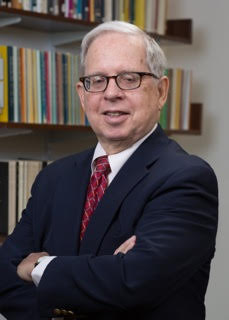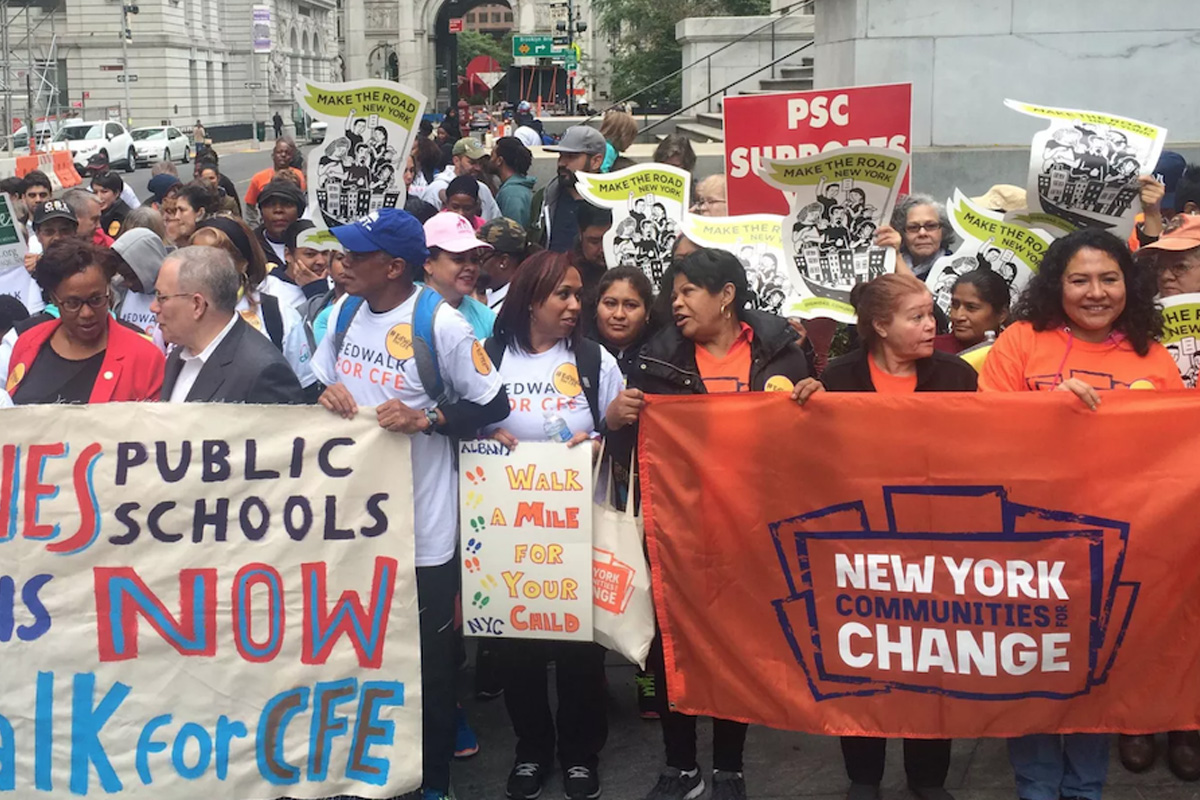Like most people who care about education in New York City, Michael Rebell is delighted that the New York State legislature has at long last made a commitment to restore a major court-ordered increase in funding to New York City’s public schools. [Read a story in the New York Daily News about the legislature’s decision.]
But looking beyond this year, when the state will deliver a first installment of roughly $1.4 billion, Rebell, Professor of Law & Educational Practice and Executive Director of Teachers College’s Center for Educational Equity, simply says, “I’ll believe it when I see it. Because there’s nothing in this legislation that prevents them from saying, next year or at any point in the future, ‘Sorry, there isn’t enough money, we’re only paying 80 percent,’ or ‘Sorry, we’re not going to pay anything at all.’”
You can’t really blame him.
After all, it took Rebell, then serving as lead attorney for the plaintiffs in CFE vs. State of New York, 13 years to win a ruling that — as vouchsafed in the state’s constitution — all children are entitled to a sound, basic education. That decision prompted the legislature to begin a massive payout that called for $4.7 billion to $5.63 billion in operating aid and $9.2 billion in capital funding.

FORGIVE HIM IF HE’S SKEPTICAL Michael Rebell applauds the legislature’s decision, but he’s been down this road before. (Photo: TC Archives)
Two years later, the 2008 recession hit. “The payments stopped and the cuts began,” Rebell says.
Add another seven years since Rebell, in a case called NYSER vs. the State of New York, sued New York Governor Andrew Cuomo to restore those funds, using the state’s primary education formula, Foundation Aid. (NYSER is a coalition that includes the New York State School Boards Association, the New York State Council of Superintendents, the New York State Parents and Teachers Association, the New York State Association of School Business Officials, the Statewide School Finance Consortium, and 11 New York City community education councils. Rebell’s work for NYSER is pro bono, and is not done in affiliation with Teachers College.]
“NYSER stands for New Yorkers for Students’ Educational Rights, but what it really means is that we’re nicer to New York City’s kids than Cuomo is,” Rebell says, grinning.
So what, really, does the new legislation portend?
Ideally, NYSER would drop its case and everyone would go home happy. But it’s equally likely, at least right now, that Rebell and the 15 other pro bono attorneys from the firms of Morgan Lewis and White & Case would continue to press their case in order to get a judge’s ruling on all they seek — which includes more than just money.
What we’re asking for, under any scenario, is that in addition to paying out foundation aid, the state needs to set up a reasonable system to determine funding in the future so that we don’t have these recurring lawsuits.
—Michael Rebell, pro bono attorney in NYSER vs. the State of New York
“We’ve produced nine expert reports on every aspect of the system, including special education [written by TC Professor of Education Celia Oyler], English language learners and the special problems of students in poverty,” Rebell says. “And what we’re asking for, under any scenario, is that in addition to paying out foundation aid, the state needs to set up a reasonable system to determine funding in the future so that we don’t have these recurring lawsuits.
“What’s needed is what the Court of Appeals in the CFE case originally ordered in 2003, which is to determine the actual number of dollars required to provide all kids with an opportunity for a sound, basic education. And that means that, instead of creating a school budget by wheeling and dealing in a back room over political pork — which is essentially what Cuomo did when he decided to ignore the foundation formula — you have a rational basis for determining what’s needed, and then you come up with an equitable formula for distributing it to all schools.
“That’s what the Court of Appeals said in 2003, and in my view, it’s still the law, and it’s what we need to do again now”
It’s a whole new world, and we need a foundation formula for 2021, not 2006.
—Michael Rebell, pro bono attorney in NYSER vs. the State of New York
The new funds awarded by the legislature for the next three years are based on a cost study the State Education Department did in 2006 — but “whatever calculations they did in 2006 are hopelessly out of date,” Rebell says. “The demographics are different, the cost of living is higher, and there are new education policies and mandates that schools are required to fulfill — plus the impact of COVID. It’s a whole new world, and we need a foundation formula for 2021, not 2006.”
And, as he points out, for the future as well — because the legislature’s decision makes no provision for further increasing spending in subsequent years as costs continue to go up.
“There’s got to be a process of analysis for looking at changing needs,” Rebell says. “Because I don’t want to have to go back to the court again five years from now.”
